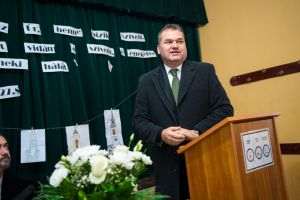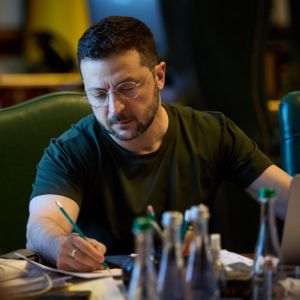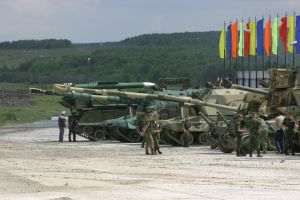• The ROTC project is intended exclusively for the members of the Brokers" Association
• Dan Paul: We would like to see that over 90% of the OTC transactions involve Fondul Proprietatea shares
• Association members claim that the CNVM has no prerogatives over unregulated markets
Brokers on the Romanian capital market are one step away from seeing their dream come true after the motion concerning the implementation of the Romanian Over-The-Counter (ROTC) Market carried unanimously during the General Meeting of the Brokers" Association and is scheduled for implementation by 1 October.
Brokers are hoping to secure an important share of the transactions involving Fondul Proprieteatea (FP), which are currently performed under less transparent conditions.
The brokers also want to bring on board the shares in the several hundreds of companies that de-listed from the Bucharest Stock Exchange (BSE) leaving captive shareholders behind and of companies that were never listed. By so doing, their aim is not to affect the liquidity of the regulated market.
International financial instruments would be the third category of securities to be traded on the new market.
"We are hoping that transactions with FP shares will account for 90% of the turnover of the ROTC until the Fund is listed (i.e. on the BSE)," Dan Paul, President of the Brokers" Association, told BURSA.
"1 October is not a firm date. We need to make an effort and put some more items in the window of our shop, but I"m still hoping that we will start trading on the OTC market next month," he added.
In order to be traded on the ROTC, shares must belong to companies that are registered with the Central Depository and do not have any pre-emptive clause in their articles of association that may prevent such form of trading.
"We have initiated talks with Fondul Proprietatea. We are in a more advance and firmer phase with them than with other entities. Our goal is to have FP shares traded on the ROTC," Dan Paul further said. "In doing so, the Fund should sign an amendment with the Central Depository specifying that they are aware of the existence of this OTC and they agree with the trading," he added.
The same procedure should be followed by all the other companies interested in having their shares traded on the ROTC.
The project is intended exclusively for the brokers who are members of the Brokers" Association, who have by right the capacity of participant in the ROTC. The brokers who once quit the Association and may be interested in re-joining now, will have to pay several additional costs.
• ROTC participants are liable before the Association for any breach of regulation
In order to participate in the ROTC, the brokers will have to accept and sign a set of trading rules, which were presented during the General Meeting on Friday. The rules create the premises for a self-regulation system within which the Board of Directors of the Association cumulates several supervisory and regulatory prerogatives and gains the right to penalize brokers for any breach of the rules.
The matter of supervision over the ROTC transactions has not yet been settled as the Brokers" Association and the CNVM have divergent opinions.
The brokers have had several rounds of talks with the CNVM and will probably continue to do so, according to Dan Paul. "We will notify them that the ROTC project has been adopted, although we have no obligation to do so. The CNVM is not opposing the project, but they insist on seeing the documentation beforehand," Dan Paul added.
However, the CNVM explained that, as the regulatory authority of the capital market, the CNVM could not ignore the existence of a trading mechanism, because such mechanism, too, was part of the capital market and was therefore under the authority of the CNVM.
"According to the Capital Market Law, CNVM can supervise only regulated markets, but the ROTC is a free market and therefore the CNVM does not have full authority over it," the Brokers" Association replied. "The Commission should be aware that the ROTC is organized on the responsibility of the Brokers" Association and has a set of operating rules," the Brokers" Association added.
According to the respective rules, transactions will be supervised by a dedicated department of the Association, which will monitor all transactions for possible breaches of trading rules. The respective department will also investigate complaints against breaches of regulations. The conclusions of such investigations and possible recommendations will be submitted to the Board of Directors for resolution.
• Transactions can also be negotiated
ROTC transactions can be performed exclusively based on "DEAL" orders, as per the ROTC rules. A participant, called "initiator" can send a "DEAL" order for sale or purchase to another participant called "counterparty," who can confirm the "DEAL order or continue the negotiation by responding with a new "DEAL" order. The negotiation is concluded when a "DEAL" order is confirmed. At such point, the transaction is registered in the ROTC system.






























































